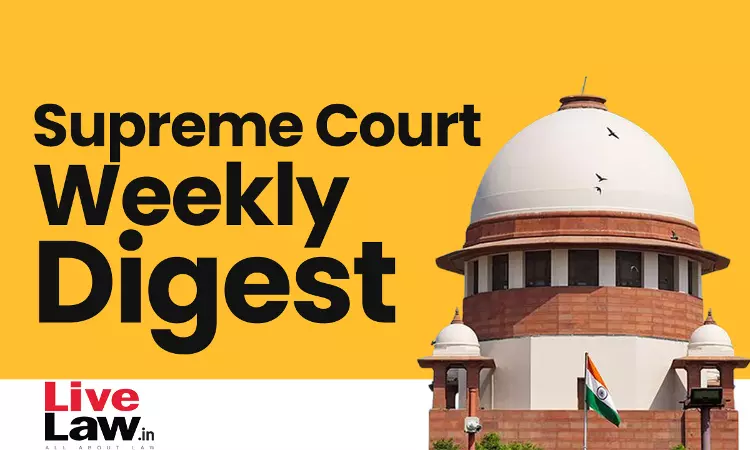Supreme Court Weekly Roundup: September 11 To September 17, 2023
Suraj Parmar
18 Sept 2023 5:27 PM IST

Next Story
18 Sept 2023 5:27 PM IST
Judgments/OrdersIt Is Duty Of Police To Produce Imprisoned Accused Before Court, Accused Can't Be Blamed For Police's Negligence: Supreme CourtCase Title: Satendra Babu vs. State of Uttar PradeshCitation : 2023 LiveLaw (SC) 766The Supreme Court recently stated that when accused persons are in prison, it is the duty of the police to produce them before the trial court. If the police fail...
